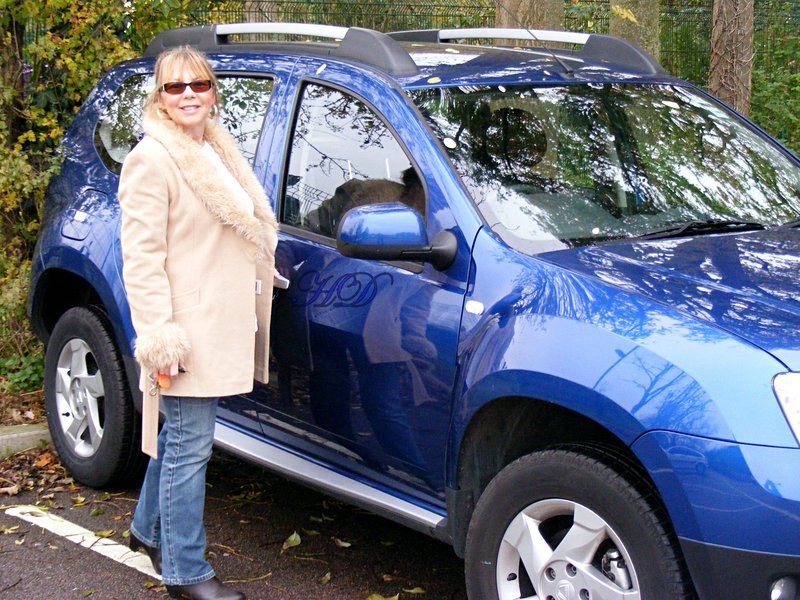Sadly I never got on the Unix/Linux bandwagon. I've got one computer at home with Linux but I rarely use it. I was working on VMS systems when Unix was getting more popular. In fact I think one of the reasons that Oracle did so well when it did was the database and some tools were being developed on VMS until the early to mid 90's and it had to be written to be easily ported to the various flavors of Unix. I also worked on porting the database to VMS once development moved to Unix and it had to be ported to it's original platform. After moving on from Oracle I mainly worked on Windows systems, but was at one company where our product used Linux and that's where I got my most significant exposure to it.
I got into Burning Man because of my wife's friends. She is an artist and they were artists who thought it was an amazing experience. They were right and one of my favorite things about Burning Man is the art.
I'd say that science fiction is my closest interest which is somewhat related to software engineering. When I went to high school I hung out with folks in the physics lab at lunch and the computer labs in the afternoons and on weekends. They were rather into science fiction and I started reading what they were saying they liked. However I had been reading the Danny Dunn books well before meeting them so the ideas around science fiction interested me even though I hadn't moved on to more adult science fiction.
So the penguins are just animals I like and not because they're associated with Linux.
I feel very, very fortunate to have gotten into Linux way back at version 0.9 when it was a stack of 30 or so 5.25" floppies. This was sometime around 1989 or so. Mostly, I was in the right place at the right time to get into the career side of it and it turned out that application people were a "dime a dozen", while true kernel and hardware level engineers were not. So I never have had trouble finding work, even in retirement.
My first introduction to computers was around 1981, when I went to a votech for programming at night. I hated the idea that there were these "gods" who actual touched the hardware while the "peons" were relegated to sitting at terminals in a different building entirely. That seemed to be the mainframe world.
But then, I discovered microprocessors. Being an electronic tech at the time, I built my own little computer from the ground up, laying out all the memory and data lines, and using point to point soldering. I brought my little Z80 based computer to school, and the instructor spent the first 20 minutes of class that night telling the class how stupid I was for wasting my time with microprocessors. I met my wife to be in that class. She sat in front of me. She still gets a laugh out of the lack of foresight that instructor had, as did the mainframe community as a whole back then. I didn't know much about computers yet, but even I could see the future for microporcessors. That Z80 had a lot of potential, and it was still relatively early in the development of the microprocessor.
When the hardware engineers decided on a design, they would get a vendor demo board from Intel, Motorola, or whomever that was generic, but had much of the components the EE's wanted to use. Years ago, the board would come with either a VxWorks or RTOS BSP (board support package). About 15 or so years ago, all these boards started being delivered with a Linux BSP. I was like a kid in a candy store. I had all the source code, rather than some OS vendor holding all the cards, and there were millions of developers all over the world sharing solutions, ideas, etc., first in news groups, and later in forums.
There is really something to seeing one's firmware start blinking lights on a brand new board, hooking up a logic analyzer and seeing data being perfectly clocked on the bus. I am eternally grateful to have fallen into a career that both paid extremely well and has always been interesting with something new at every turn.
For the first 10 years of my engineering career, I didn't have a degree and spent much of my time in startups and small companies where that didn't matter nearly as much as what you could actually do. As a result, I never got pigeon-holed as many did in the big companies, and then get shoved out the door when in their 50s. After I got my degree, I did end up working for some large companies, mostly out of Silicon Valley, and some from the east coast. To me, Cisco Systems was the best run company I ever worked for. Very impressive. Unfortunately, with the .com bubble burst, they had massive layoffs, but it took me only a week to find another job. That has always been the case for me.
I have worked on lots of interesting projects, from internet appliances at Cisco Systems, to fast packet processors for the Paris, France subway system at GE, to all manner of forward-thinking products at startups, and on and on. I have written a few applications, but mostly stayed at or below the kernel level, where life to me is much more interesting.
I never did get into the VAX world, though I knew many who did. It sounded like interesting stuff too. I took one job in the mainframe COBOL programming world right after graduating from the votech. I hated the work and lasted about 6 months before going back to working as a tech. Then, the opportunity cam along to get into PCs and lower level programming and I never looked back.
Tony






